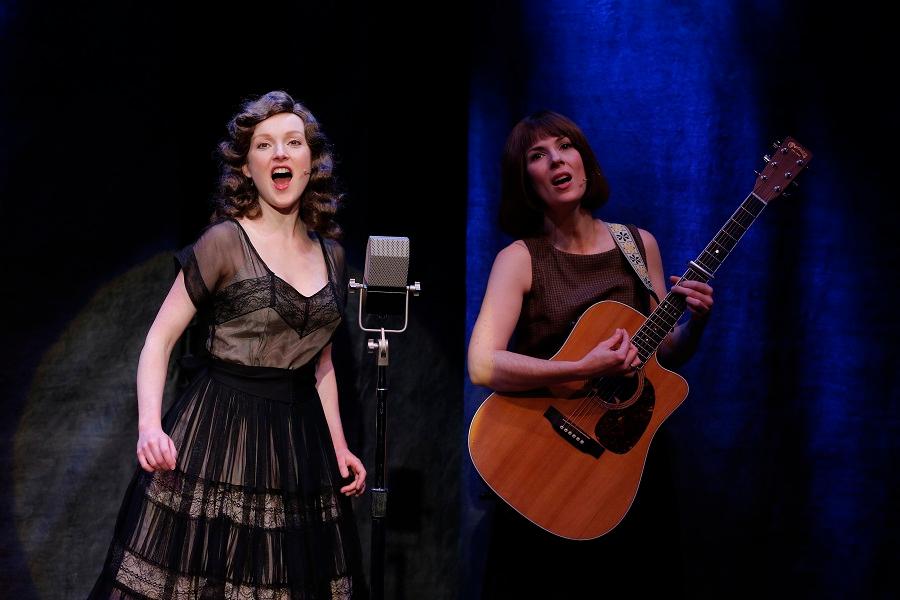If you know what a hootenanny is, then you will find “Lonesome Traveler” nostalgic. If you are too young to know the expression, then you will find the show educational. The revue, written and directed by James O'Neil, is light on the history but showcases more than 30 folk songs, well performed. Musical direction is by Trevor Wheetman and orchestrations are by George Grove.
The cast members portray famous folk singers and folk groups. The women change their hairstyles, so Sylvie Davidson puts on a blond wig to become Mary Travers of Peter, Paul and Mary (“Puff, the Magic Dragon”), and the men put on preppy shirts to play the Kingston Trio (“Tom Dooley”).

(L–R) Sylvie Davidson, Nicholas Mongiardo-Cooper, Justin Flagg, and Matty Charles take listeners back through folk music history. Carol Rosegg






